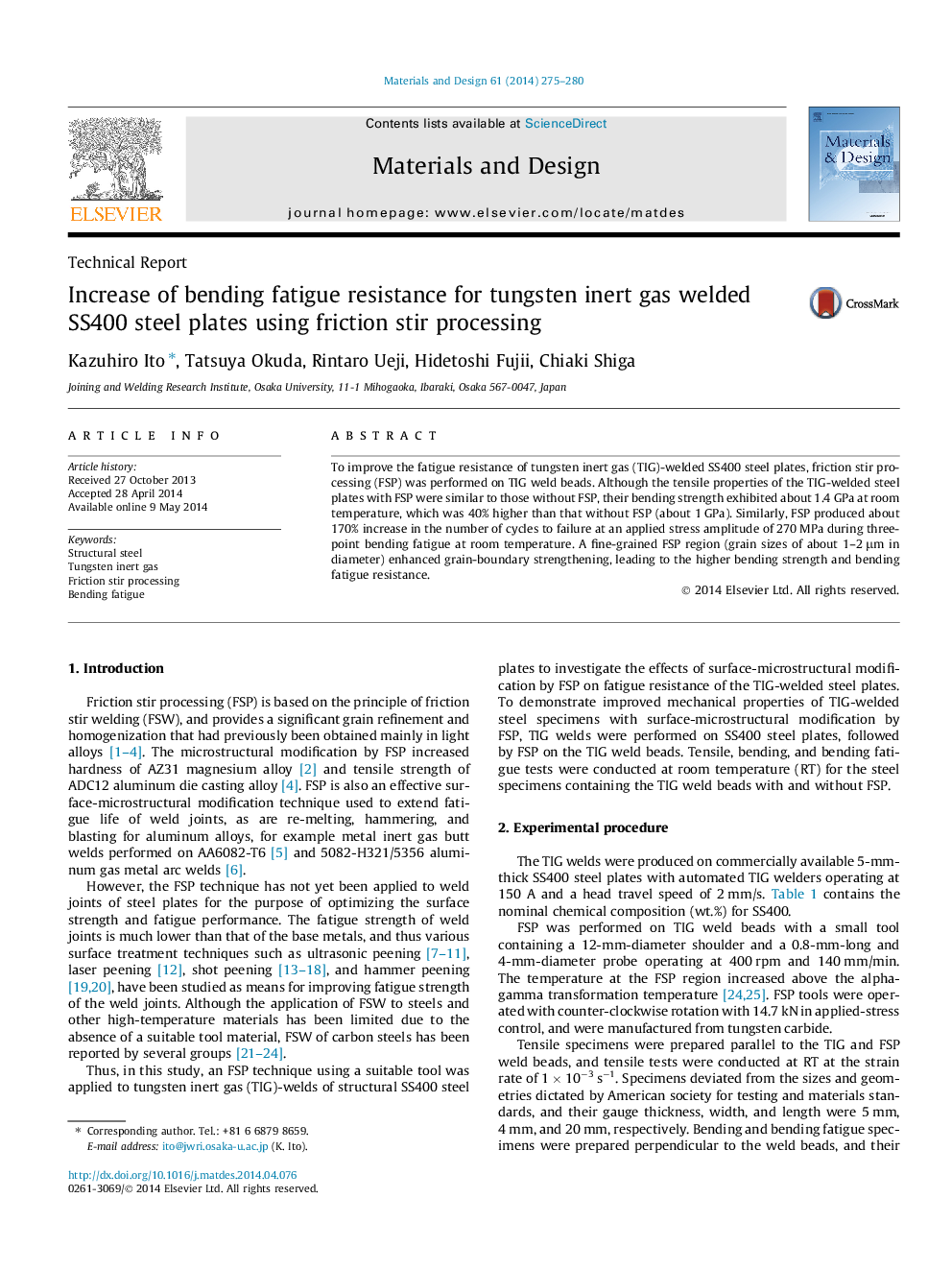| Article ID | Journal | Published Year | Pages | File Type |
|---|---|---|---|---|
| 829158 | Materials & Design (1980-2015) | 2014 | 6 Pages |
•The first time FSP modification of bending properties in the TIG-welded steel plates.•FSP produced about 40% increase in bending strength at RT.•FSP produced about 170% increase in the number of cycles to failure at 270 MPa at RT.•FSP produced a zigzag-shaped crack at the fatigue fracture start portion.•A fine-grained FSP region (grain sizes of about 1–2 μm in diameter) was observed.
To improve the fatigue resistance of tungsten inert gas (TIG)-welded SS400 steel plates, friction stir processing (FSP) was performed on TIG weld beads. Although the tensile properties of the TIG-welded steel plates with FSP were similar to those without FSP, their bending strength exhibited about 1.4 GPa at room temperature, which was 40% higher than that without FSP (about 1 GPa). Similarly, FSP produced about 170% increase in the number of cycles to failure at an applied stress amplitude of 270 MPa during three-point bending fatigue at room temperature. A fine-grained FSP region (grain sizes of about 1–2 μm in diameter) enhanced grain-boundary strengthening, leading to the higher bending strength and bending fatigue resistance.
